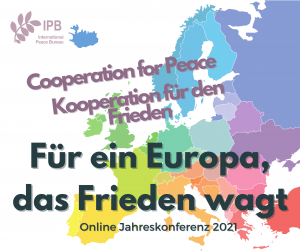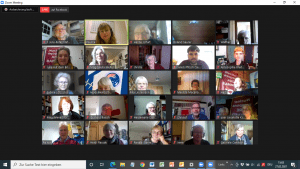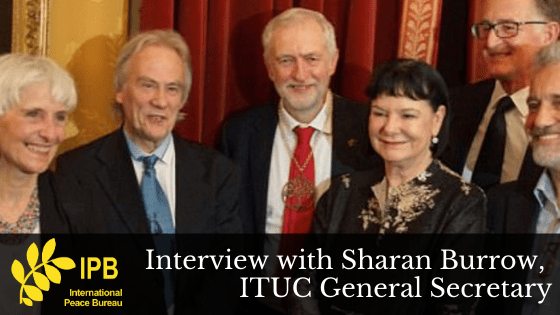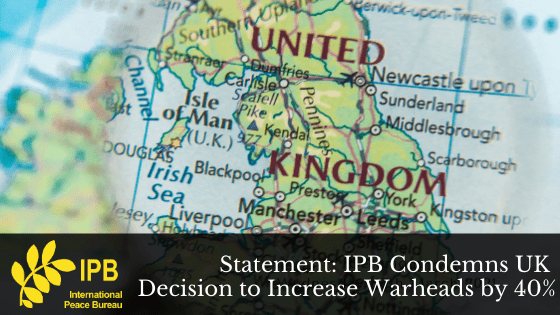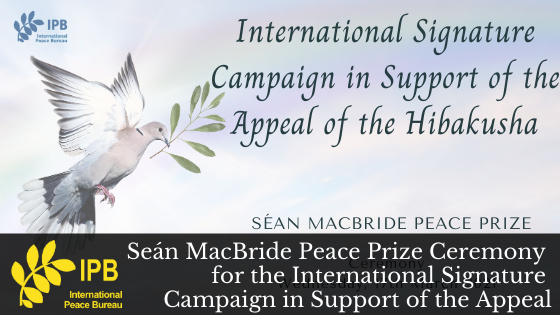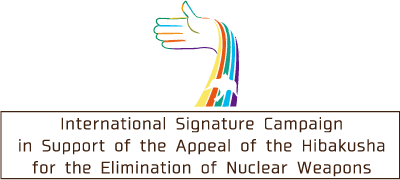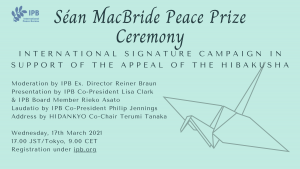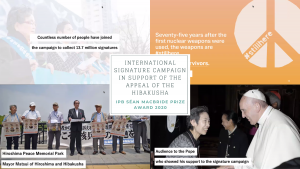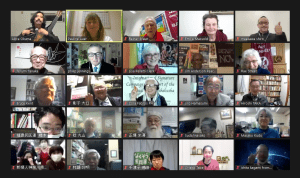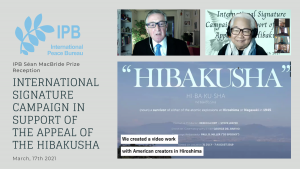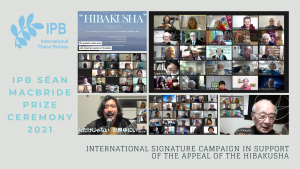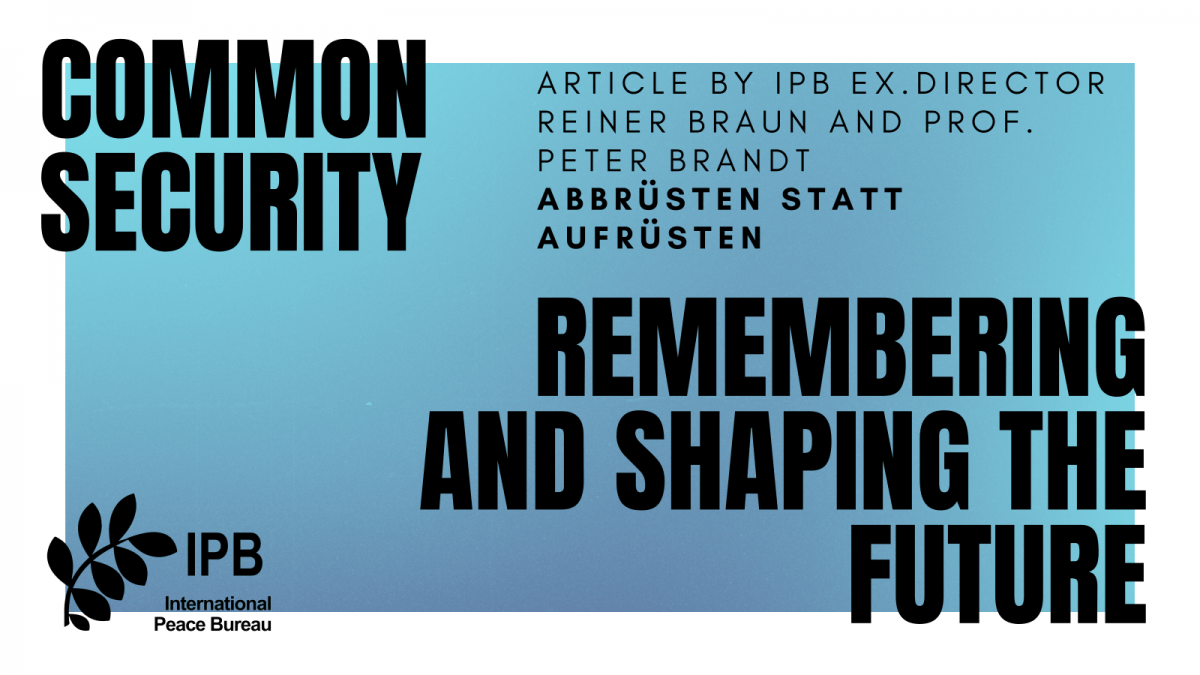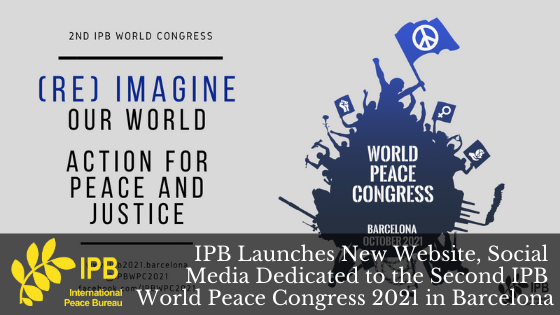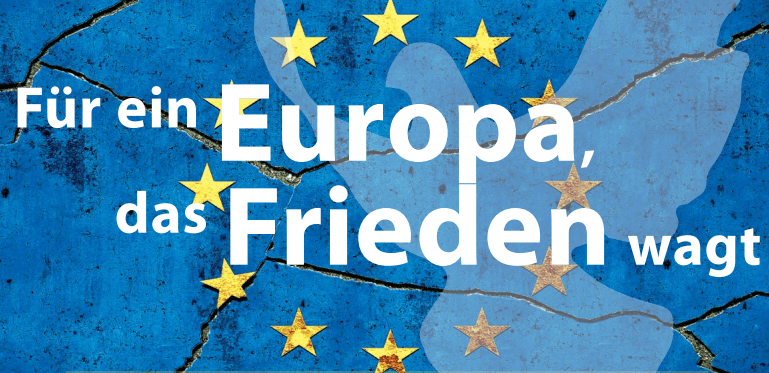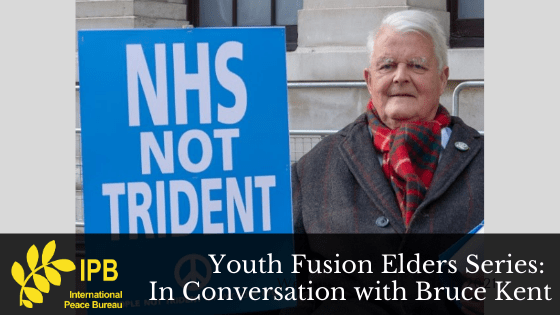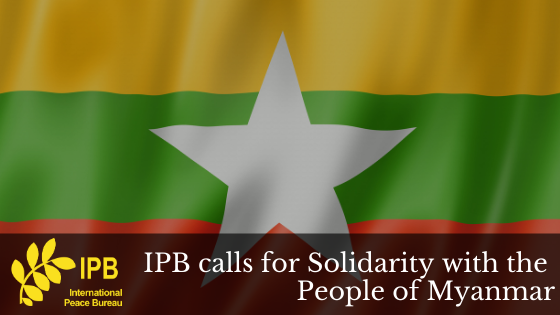On Friday, 26th and Saturday, 27th of February 2021, the IPB supported the German initiative Kooperation für den Frieden (Coopeation for Peace), in collaboration with Welt ohne Waffen (World without Weapons) Weimar and the Rosa-Luxemburg Foundation, hosting their Annual Conference ‘Für ein Europa, das Frieden wagt’ (‘For a Europe daring Peace’).
Cooperation for Peace encompasses and association of more than 50 initiatives and organizations of the German peace movement. Founded in 2003, they strive for the development of peaceful methods and strategies for conflict prevention and resolution, denouncing politics of violence and coercion.
Albeit held in a fully virtual format acknowledging the exceptional circumstances we are currently living and working under, the conference featured everything a great gathering of passionate peace activists ought to display: Opening music, moving speeches, passionate panelists, skilled exposés, intriguing discussions, and of course as much socializing as can possibly be cramped into the tight but rigorously rich schedule.
Dr. Klaus Dörre from Jena University impressively demonstrated in eight theses the connection between peace, climate change and the Sustainable Development Goals. The subsequent panel discussion with, among others, IPB-Board member Alain Rouy (Mouvement de la Paix, France) and Yuri Sheliazhenko (War Resisters International. Ukraine) sketched out intriguing perspectives and proposals regarding Europe’s ongoing militarization.
Saturday morning, again moderated by Torsten Schleip (Friedenszentrum Leipzig e.V.) and IPB Executive Director Reiner Braun, started with the very holistic European security assessment from a Russian perspective by Vladislav Belov, European Institute Moscow. Straight forward, Ralf Becker (Coordinator initiative ‘Sicherheit neu denken’/’Rethinking Security’) explained the five pillars of a European civil security concept based on the sustainable development of EU-neighbor states and an economic and security partnership with Europe.
Imagining a ‘European Peace Project’ could have been the headline of the following session featuring Alain on the French security ideology and practice-paradox, Yuri on peace with and within the European Union, Willy van Ooyen (Bundesausschuss Friedensratschlag) on collective security and Dr. Christine Schweitzer (Bund für Soziale Verteidigung) calling for a diverse, inclusive ‘peace from below’. Five different breakout sessions on topics from disarmament to social movements and trans-border cooperation, new humanitarian politics in Europe and feminist perspectives allowed for dynamic conversations and interactive sharing of knowledge and experiences.
Closing with remarks from Reiner, Renate Wanie (Kooperation für den Frieden/Werkstatt für Gewaltfreie Aktion) and Jens-Peter Steffen (Co-Speaker Cooperation for Peace) two days of intense exchange drew to a close. Despite minor technical hick-ups, the overly positive feedback from the no less than 100 participants reassured us of the importance that peace work carries now when physical distance easily amplifies mental and ideological disconnect, motivating us to keep the ball rolling and stay engaged even when this means spending more time in front of a screen than we would all wish to.
Many thanks to all the speakers, organizers, moderators and participants who made this event such a great experience and huge success! See you (hopefully) next year, live and in colour!
You can find the conference’s full programme here. Learn more about ‘Kooperation für den Frieden’ and the conference here.
